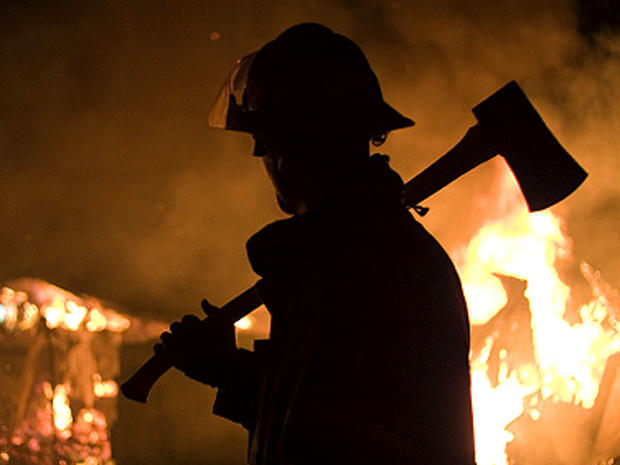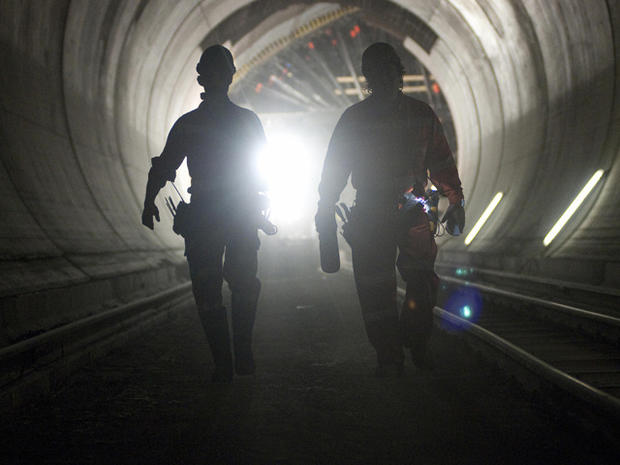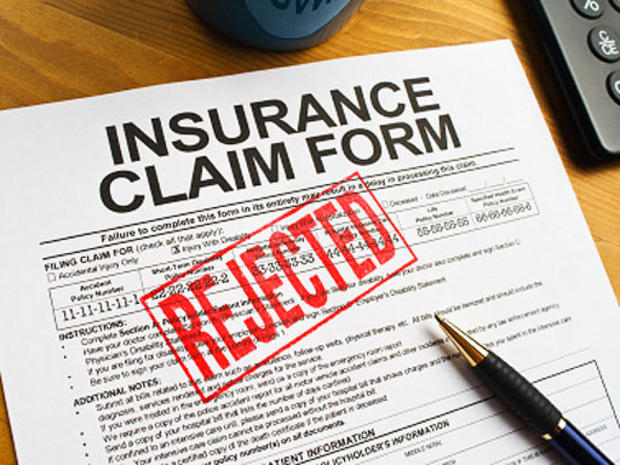Worked to death? 10 jobs that may hurt your heart
Although most people don't think of heart disease as an occupational hazard, certain characteristics of your job may be upping your risk for heart attacks and other problems.
Some work-related factors - such as sitting long hours at a desk, stress, irregular work hours, and exposure to certain chemicals or pollution - could also harm your heart.
From our friends at Health.com, click through to see some jobs and job characteristics that could be upping your risk - and what to do about it.
Worked to death? 10 jobs that may hurt your heart
Desk jockeys
It's not clear why, but prolonged sitting may cause a drop in insulin sensitivity and enzymes that normally break down fat, she says.
Standing up and walking around once in a while or working at a standing desk may help.
Worked to death? 10 jobs that may hurt your heart
Emergency responders
Long hours, shift work, unhealthy eating at work, stress, exposure to carbon monoxide or other pollutants, as well as high rates of other risk factors, like hypertension (which have been documented in emergency responders), may play a role.
If you can't change your job, focus on things - like healthy eating, exercise, and lowering blood pressure - that you can control.
Worked to death? 10 jobs that may hurt your heart
Bus drivers
It may be because it's a sedentary
occupation that requires vigilance to avoid accidents and keep
passengers safe, which can stress your system, he says.
While you may not be able to control stress or pollution, you can address other risk factors.
In one study, 56% of bus drivers in Taipei had hypertension compared with 31% of other workers. They also had higher cholesterol, body weight, trigylercides, and heart disease rates.
Worked to death? 10 jobs that may hurt your heart
Shift workers
Rotating shifts, a schedule common for doctors, nurses, and others, is linked to a higher risk of heart disease and type 2 diabetes. Shift work itself may disrupt circadian rhythms, the "body clock" that plays a role in blood sugar, blood pressure, and insulin regulation.
But lifestyle may be a factor too. Night-shift workers seem to be more likely to smoke, says Dr. Nieca Goldberg, medical director of the Joan H. Tisch Center for Women's Health at NYU Langone Medical Center in New York City. And short sleep duration is linked to greater heart risk (5 to 6 hours per night vs. 7 to 8 hours).
Worked to death? 10 jobs that may hurt your heart
Bartenders
But bartenders and servers in places that don't have such restrictions can still be forced to involuntarily inhale patrons' tobacco smoke.
"It's been well shown that secondhand smoke significantly increases the risk of heart attack," says Dr. Grogan.
Good ventilation systems can help. So can lobbying your legislators to change local rules.
Worked to death? 10 jobs that may hurt your heart
Bridge and tunnel workers
"It's intuitive," says Dr. Mauro Moscucci, chief of the cardiovascular division at the University of Miami Miller School of Medicine. "These workers are exposed to higher levels of carbon monoxide compared to bridge workers."
Studies have shown that exposure to air pollution can increase the risk of both heart attacks and strokes.
Worked to death? 10 jobs that may hurt your heart
High demand, little control
"Being out of control of your own fate is an increased stressor leading to cardiovascular disease," says Dr. Moscucci.
The landmark Whitehall study of about 11,000 British civil servants found that men and women with low job control had double the risk of heart disease as those with more control over their work.
Worked to death? 10 jobs that may hurt your heart
Long hours
The Whitehall study found a 67% increased risk for coronary heart disease among British civil servants who worked 11 or more hours a day compared with those only working 7 to 8 hours.
If you can't cut back on your hours, focus instead on risk factors you can control: eat plenty of fruits and vegetables, get enough sleep, and exercise several times a week.
Worked to death? 10 jobs that may hurt your heart
Jobs with no health insurance
About 50 million Americans, or 1 in 6 people, were uninsured in 2010.
Lack of health insurance has been associated with worse health in general and heart health in particular.
But previously uninsured adults who started receiving Medicare reported better health after acquiring coverage, according to a 2007 study in the Journal of the American Medical Association.
Worked to death? 10 jobs that may hurt your heart
Losing your job
Older workers who lose their job through no fault of their own (for example, because an office or plant closed, not because of health problems) have more than double the stroke risk as people who keep their jobs, according to a 2004 study.
And a Harvard study from 2009 found that people who lost their job were more likely to develop a new problem, such as high blood pressure, diabetes, and heart disease in the next year or two than those who didn't.
While losing your job can be psychologically and financially difficult, there are ways to stay healthy on a budget.










